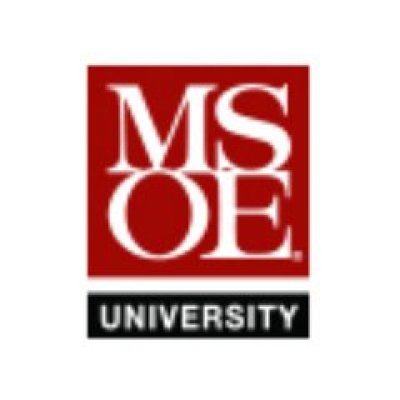Leah Newman, Ph.D.
Associate Professor, Industrial Engineering Program Director Milwaukee School of Engineering
- Milwaukee WI
Dr. Leah Newman's research interests include industrial engineering and engineering education.

Milwaukee School of Engineering
View more experts managed by Milwaukee School of Engineering
Education, Licensure and Certification
Ph.D.
Industrial Engineering
University of Wisconsin-Madison
1997
M.S.
Industrial Engineering
University of Wisconsin-Madison
1993
B.S.
Industrial Engineering
University of Wisconsin-Madison
1991
Biography
Areas of Expertise
Accomplishments
Falk Engineering Educator Award, MSOE
Finalist, 2012
Outstanding Faculty of the Year Award
IIE, Penn State University, 2004, 2006
Outstanding Teaching Assistant
University of Wisconsin-Madison, 1997
Affiliations
- Institute of Industrial and Systems Engineers (IISE) : Member
- American Society of Engineering Education (ASEE) : Member
- National Society of Black Engineers (NSBE) : Member
- Human Factors and Ergonomics Society (HFES) : Member
Social
Media Appearances
Dr. Leah Newman
MSOE News
2019-09-16
When Dr. Leah Newman started college, she decided to major in engineering—just in case.
The freshman from Chicago had her sights on law school with the goal of becoming a judge someday. Newman could have studied political science or history. “But I’m practical, if nothing else,” Newman said. “I thought, ‘What if I can’t go to law school? I need to find work.’”
Industrial engineers improve process, create work opportunities
MSOE News
2019-04-10
Dr. Leah Newman, associate professor of industrial engineering, and students in her ergonomics classes have been working to improve the ergonomic conditions of the Racine-based company’s switch assembly and cord wrapping processes.
Students with big ideas reap big rewards at Festival
MSOE News
2016-04-29
Entries were evaluated on their “big-ness” (How buzz-worthy and transformative is the idea?), design (How original and creative was the design of the presentation?) and the execution (Was the delivery engaging or entertaining? Was the delivery seamless and well-prepared?) Faculty judging the event included Wikoff, Dr. William Gonwa and Dr. Leah Newman. About 70 people attended the new event.
Selected Publications
Engineering Design, Project Management, and Community Service Connected Through Servant Leadership
Proceedings of the 120th Annual ASEE 2013 Conference: Engineering Education: Frankly, We Do Give a D*mnTraum, M. J., Newman, L., Howell, D.
2013
Servant-Leadership is a leadership paradigm that emphasizes power sharing in decision making processes. It also encourages leaders to serve those they manage by propelling them toward high achievement while promoting their professional growth and self-efficacy.
Macroergonomics Methods: Interviews and Focus Groups
Proceedings of the Human Factors and Ergonomics Society Annual MeetingNewman, L.C.
2002
Both the interviewing and focus group processes have been around and in use as tools for gathering information for decades. For someone who is interested in learning more about people and their experiences, what better way to accomplish this than by speaking directly with an individual or group of individuals? Individual as well as group interviews are windows to an understanding of the behaviors of those being interviewed. Focus groups, specifically, are viewed as a window into the human condition and human interaction. Although, the individual interview is one of the most widely used methods for collecting qualitative data, focus groups have recently gained more popularity among qualitative researchers as a method of choice.
Educational Quality - A Macroergonomics Approach
Proceedings of the Human Factors and Ergonomics Society Annual MeetingNewman, L.C.
2000
The institution of education has been one of many institutions that has been negligent in the nurturing and development of underrepresented groups in society. This institution has all but failed this significant segment of the population and, as a result, has failed society as a whole. Providing access to equal educational opportunities is vital to the survival of our communities, and society as a whole. Statistics suggest that by the millennium, underrepresented populations will encompass a large portion of the population. If our society is to remain competitive, not only will it be necessary to better develop the concept of equal educational opportunity but it will also be imperative to put these ideas into practice. The global village in which we find ourselves makes it essential that we focus on areas such as creating a diverse pipeline for future engineers and scientists. If we are to meet the demands of the 21st century, it is necessary that we focus on the academic environment and the education of our young people. A qualitative research approach was used to help extract information regarding student success and/or failure in the College of Engineering at a large Midwestern university. This research integrates principles of Total Quality Management (TQM) and systems design in an effort to identify those factors that hinder or enhance the educational performance and success of underrepresented student populations pursuing higher education in engineering and science.
Education and the Impact on Work
Proceedings of the IEA 2000/HFES 2000 Conference: Ergonomics for the New MillenniumNewman, L.C.
2000



